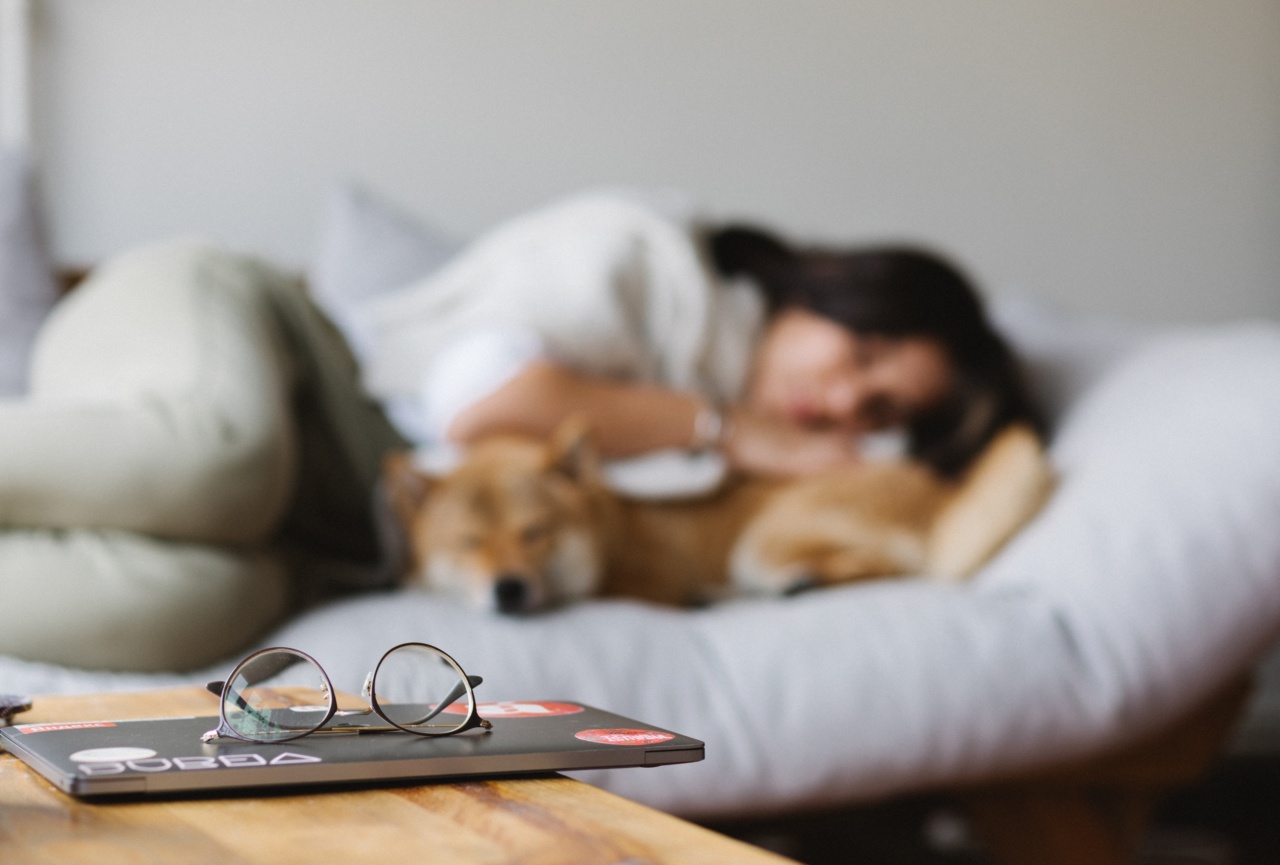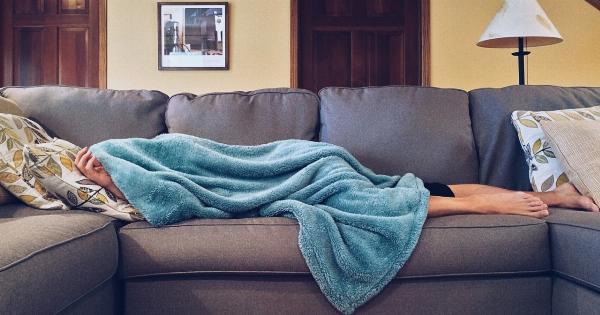Many people find themselves falling asleep on the couch while watching TV or simply because they are too tired to make it to their bed. While this may seem like a convenient solution, it is actually detrimental to your sleep quality and overall health.
In this article, we will discuss how sleeping on the couch every night can ruin your sleep and provide some tips on how to improve your sleep hygiene.
The Importance of Sleep
Sleep plays a critical role in our overall health and well-being. It is during sleep that our bodies repair and regenerate cells, consolidate memories, and strengthen our immune system.
A good night’s sleep is vital for maintaining optimal cognitive function, emotional well-being, and physical health.
The Downside of Couch Sleeping
While the occasional nap on the couch may not be a problem, making it a habit can lead to several negative effects on your sleep:.
1. Lack of Comfort
Most couches are not designed with sleep in mind. They lack the necessary support and comfort that a proper mattress can provide. This can lead to tossing and turning throughout the night, causing discomfort and restless sleep.
2. Disrupted Sleep Cycle
Our bodies have an internal clock known as the circadian rhythm, which regulates our sleep-wake cycle. Sleeping on the couch can disrupt this cycle, as it may not offer the optimal sleeping conditions required for a restful night’s sleep.
This can lead to difficulty falling asleep, frequent awakenings, and overall disrupted sleep patterns.
3. Increased Risk of Back and Neck Pain
Many couches do not provide adequate support for the spine, which can lead to back and neck pain. Over time, sleeping on a couch without proper support can cause chronic pain and discomfort, making it even more challenging to get quality sleep.
4. Poor Sleep Quality
Sleeping on the couch can lead to poor sleep quality overall. The discomfort, disrupted sleep cycle, and increased risk of pain can all contribute to a restless and unsatisfying sleep experience.
This can leave you feeling tired and groggy the next day, impacting your productivity and overall well-being.
Tips for Improving Sleep Quality
Now that we understand why sleeping on the couch is detrimental to our sleep, let’s explore some tips for improving our sleep quality:.
1. Create a Sleep-Conducive Environment
Make your bedroom a sleep-friendly space by keeping it cool, dark, and quiet.
Use blackout curtains or an eye mask to block out any light, and consider using earplugs or a white noise machine to drown out any disruptive sounds that could disturb your sleep.
2. Invest in a Comfortable Mattress and Pillow
A good mattress and pillow are essential for a restful night’s sleep. Ensure that your mattress provides adequate support for your body, and choose a pillow that aligns with your sleeping position and preferences.
Experiment with different levels of firmness until you find what works best for you.
3. Follow a Consistent Sleep Schedule
Try to go to bed and wake up at the same time every day, even on weekends. This helps regulate your circadian rhythm and trains your body to recognize when it is time to sleep and wake up. Consistency is key in promoting healthy sleep patterns.
4. Establish a Bedtime Routine
Create a relaxing bedtime routine that helps signal to your body that it is time to wind down and prepare for sleep.
This could include activities such as reading a book, taking a warm bath, or practicing relaxation techniques such as deep breathing or meditation.
5. Avoid Stimulants and Electronics Before Bed
Avoid consuming stimulants such as caffeine and nicotine close to bedtime, as they can interfere with your ability to fall asleep.
Additionally, the blue light emitted by electronic devices such as smartphones, tablets, and TVs can hinder the production of melatonin, a hormone that regulates sleep. It is best to avoid using these devices at least an hour before bed.
6. Create a Comfortable Sleeping Environment
Ensure that your bedroom is a comfortable, clutter-free space that promotes relaxation and sleep.
Use comfortable bedding, keep the room temperature cool, and consider using white noise or calming scents such as lavender to create a soothing atmosphere.
7. Limit Daytime Napping
If you find yourself consistently falling asleep on the couch, it may be a sign that you are not getting enough sleep during the night. Limit daytime napping to no longer than 20-30 minutes and try to avoid napping too close to your bedtime.
8. Exercise Regularly
Engaging in regular physical activity can help promote better sleep.
However, it is important to schedule your exercise sessions at least a few hours before bedtime, as exercising too close to bedtime can increase alertness and make it difficult to fall asleep.
9. Seek Professional Help if Needed
If you have tried implementing these strategies and still struggle with getting quality sleep, it may be beneficial to seek help from a healthcare professional.
They can evaluate your sleep patterns, identify any underlying sleep disorders, and provide appropriate treatment options.
Conclusion
While it may be tempting to fall asleep on the couch, especially after a long day, it is important to prioritize your sleep hygiene for the sake of your health and well-being.
Ensure that you create a sleep-conducive environment, invest in a comfortable mattress and pillow, follow a consistent sleep schedule, establish a bedtime routine, and limit stimulants and electronics before bed. By taking these steps, you can improve your sleep quality and wake up feeling refreshed and rejuvenated each day.































